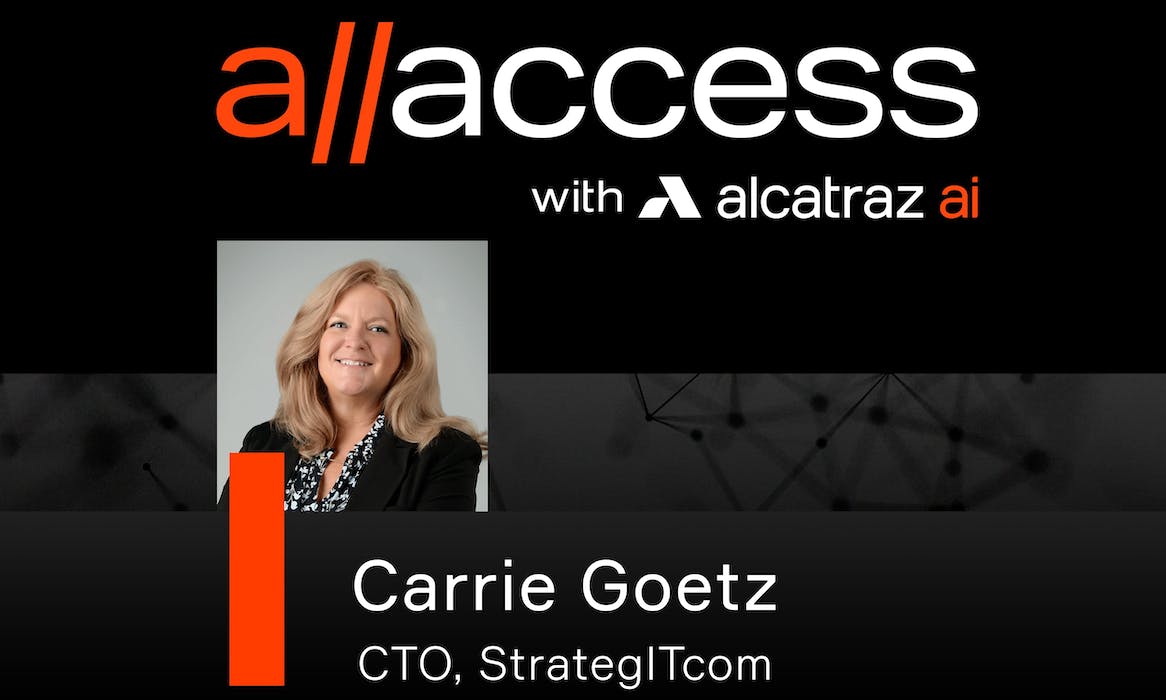
In 2022, data is one of a company's most valuable assets, making data center deployment and security an ongoing priority for many business leaders. Carrie Goetz has been at the forefront of these initiatives for decades as an executive, payment services provider (PSP), international keynote speaker, and published author in more than 250 publications.
Today, Goetz is the chief technology officer (CTO) at StrategITcom, which offers fractional CTO and CIO services through its flagship CTOaaS offering. We recently spoke with Goetz about the latest trends in data center security, the impact of the recent pandemic on on-site data operations, and the impact of facial authentication on the present and future of security.
In 2019, you published a blog post that helped companies choose the right data center. A lot has changed in the business landscape since you published that post. Are there any updated recommendations you would encourage decision-makers to consider, especially related to facility security?
I think we have gotten pretty mature when it comes to overall site security. I don’t think that any colo or any data center really has a willy nilly approach, in part due to compliance but mostly because data can be viewed as a company’s greatest asset after their employees. That said, responsiveness, response time in crisis, on-site support, and staffing are all considerations to be evaluated.
We have recently witnessed many products from China being banned in the security realm, including cameras, access controls, and more. I think that part of due diligence should include the security system's security in place. Can it be expanded, or will it need to be overhauled? Downtime for security must be planned, and some accommodation will need to be made to assure that the actual site security is not compromised during the upgrades.
As a business leader and a security expert, what are the most commonly overlooked security priorities that plague companies today?
Scalability, incidence reporting, and overall functionality should be top of mind. Security is still very much viewed as a pain instead of a necessary function. System scalability hits hard when readers and door access is cut off due to too many devices. In addition, security systems from certain countries are posing unique challenges.
I think that any company would do well to look at all the features available on the market before just picking a system. We have really gotten away from doing RFIs and evaluating what goods and services are out there. The downside is that companies just “put something in” that may not meet their long-term needs.
Changeouts and upgrades can be costly and risky. They can also lead to worker dissatisfaction. I think many workers expect the same type of functionality they see on their own devices. Things like facial recognition being one of the features people have grown comfortable with that also can increase productivity over having to dig out a badge or card. This is one area where private citizens are bringing their companies into the fold instead of the other way around.
The ongoing pandemic has altered many people’s relationships with the workplace. As companies welcome their people back to the office, how should they adjust or adapt their physical spaces to support access control and security requirements?
I think, in many ways, it is going to be a bit trickier as people return to the office. Making someone feel safe in a nearly deserted building is a little different than when that same person is surrounded by a bunch of coworkers. But, in many cities, homelessness, mental illness, and other tragedies impact not just the interior of the business space but also the public spaces that surround the work environment.
It’s more important than ever to verify people entering and even where they are allowed to go once inside. Simply having fewer people heightens the need to have systems that support access. We cannot rely on someone noticing if that someone isn’t there. Even areas that seemed innocuous before may not be anymore. Life safety is certainly paramount and must likewise be addressed. It’s important to know who is in your building and where they might be.
What's your favorite feature about Alcatraz?
My favorite feature about Alcatraz is the simplicity of the system and the fact that it relies on “non-losable” things. You can lose a card, a key, or anything, but you don’t often lose your own face. I think that having a system that uses actionable, repeatable, verifiable data to create a secure environment is an amazing concept!
← Previous -- Next →
Tag(s):
All Access
Other posts you might be interested in
View All Posts
Blog
7 min read
| February 11, 2022
5 Physical Security Measures Every Organization Should Take | Alcatraz AI
Read More
Blog
9 min read
| May 12, 2022
How to Minimize Banking Security Concerns with Facial Biometrics
Read More
Press Release
5 min read
| November 12, 2024
Alcatraz AI Publishes New Security Best Practices for Data Centers Amidst Projected Growth in 2025
Read MoreSubscribe to email updates
Additional content around the benefits of subscribing to this blog feed.


